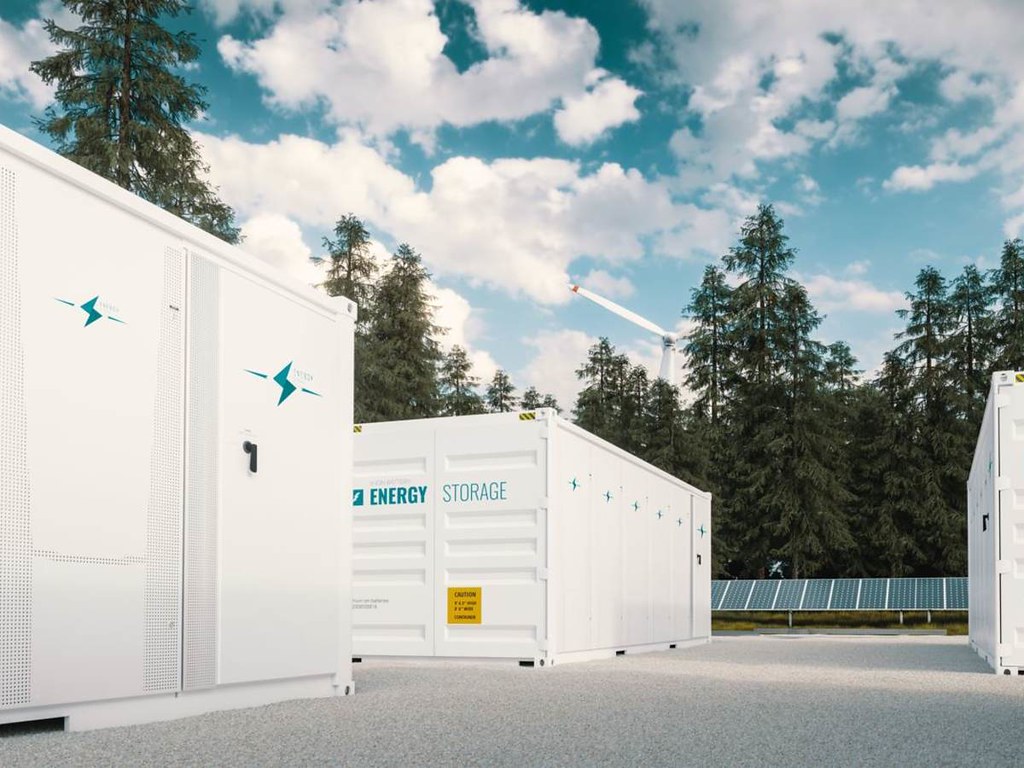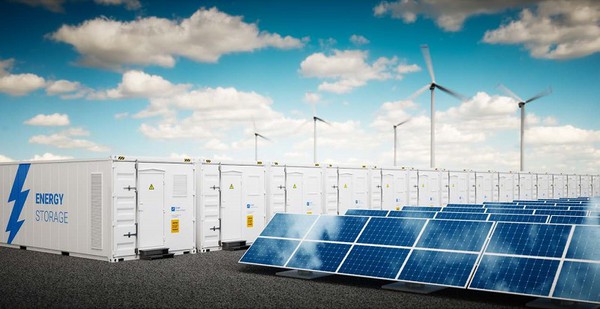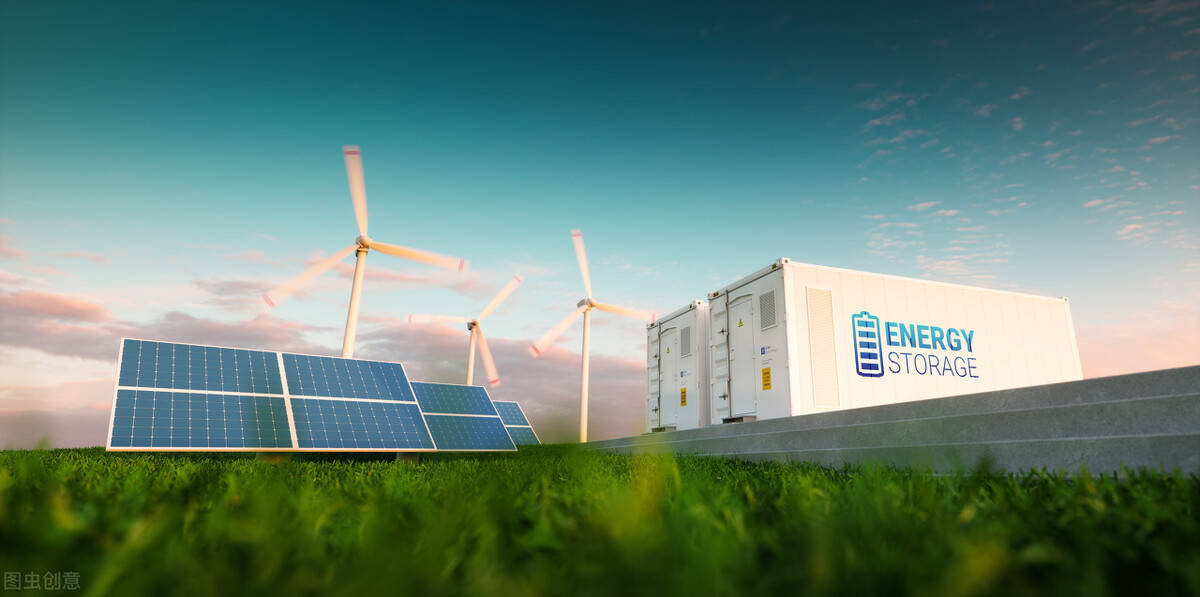However, not everyone will benefit from the increased energy independence that comes with storing solar energy in solar battery storage.
The addition of solar battery storage to a home solar power system increases the number of variables, the price tag, and the level of complexity that the homeowner must deal with.
While net metering is beneficial for many homes, it still requires dealing with the supplier and reduces your independence.
Let's weigh the benefits and drawbacks of using a solar battery backup storage system so that we can make an educated decision.
Need a solar battery backup system or want to become more self-reliant in general? The type of battery system you purchase, however, will be determined by your end goal. However, an ESS investment is not right for everyone, so we'll examine the factors to consider before making a final decision. Fortunately, energy storage is likely to have more benefits than drawbacks, especially when it comes to solar electricity. The benefits range from system to system. Specifically, grid-tied with battery backup versus off-grid operation. DC coupled ['off-grid' system] or alternating current coupled ['on-grid' system] battery systems are alternative names for the same thing.
AC Coupled: Direct Current [DC] from your solar panels is fed into the AC coupled battery system via the conventional standalone string inverter and the Solar Battery system.
The Tesla Powerwall is a great example of a battery of this type. The Tesla Powerwall battery system is compatible with both single-phase and three-phase homes.
This solar battery is one of a kind since it saves alternating current (AC) from a solar inverter. These AC connected battery devices not only contain a battery component that stores energy, but also a built-in rectifier/inverter that transforms some of the AC current, back to DC within the battery system, in order to charge the battery component. The metre box is used to return the AC power that is not consumed by the battery component to the house, where it can be used.

DC coupled: This necessitates the use of a "hybrid inverter" to which your battery can be linked. A solar inverter that can also charge batteries is called a hybrid inverter. The DC battery charger takes the direct current (DC) power from the solar panels and stores it in the battery. After being charged by the battery, the DC power is sent back to the inverter. The inverter then transforms the DC into AC. The AC is then sent back into the home through the meter box.
To implement the DC coupling system with these batteries, a hybrid inverter is required. These items only have single-phase characteristics, so please keep that in mind. If this battery setup is needed for a 3 Phase property, additional specialized converter devices will be necessary.
Lead-acid batteries are one of the most popular options for vehicles and other industrial uses, and they have been around for decades. Despite their low energy density (how much power they can store per kilogram), they are often used in residential solar installations because of their low price and high reliability.
Depending on the application and maximum allowable depth of discharge (DOD), lead-acid batteries are categorized as either shallow cycle or deep cycle. Due to recent technological developments, these batteries now have an extended lifespan, making lead-acid a realistic option for many households.
Lithium-ion battery technology is relatively recent in comparison to those of other battery types. Smaller, lighter, and more efficient, lithium-ion batteries have a high energy density. They're fantastic for usage in laptops, phones, and even around the house, as the user can get more use out of the battery's stored energy before it needs to be recharged.
Lithium-ion batteries' main downside is their astronomically higher retail price. Lithium-ion batteries can also explode owing to thermal runaway if they are fitted incorrectly.
Due to their extraordinary endurance and usefulness in high temperatures, nickel-cadmium batteries are more commonly seen in industrial and aviation settings than in private homes. Maintenance for nickel-cadmium batteries is also low in comparison to other battery types.
Unfortunately, cadmium is a highly hazardous element that can have serious detrimental effects on our environment if not disposed of correctly.
Chemical processes are the backbone of flow batteries. In a battery, energy is generated when electrolytes move between two compartments. Flow batteries have a poor energy density, therefore the tanks holding the electrolyte liquid need to be fairly large if they are to store a lot of energy. However, they are very efficient, with a depth of discharge of 100%. Because of their size, they are prohibitively expensive and not very useful around the house. Flow batteries excel in larger settings and more demanding uses.
A solar battery or battery system's price will vary according to the battery's capacity and kind. Lead-acid batteries are less expensive to purchase initially than lithium-ion batteries, although the latter may end up saving the buyer money in the long run.
The price of a single lead-acid battery can vary widely, from around $200 to $800 or more. Multiple lead-acid batteries may be required to provide continuous electricity to a home. A lithium-ion solar battery system for a home, including installation, typically costs between $7,00 and $14,000.
Nickel-cadmium and flow battery costs might differ greatly depending on the scope of the deployment. Due to factors including price, durability, size, stability in severe temperatures, and disposal requirements upon replacement, these batteries are not typically employed in residential settings.
Think about how much energy you use in a regular day at home: Mornings, when everyone is getting ready for the day, and evenings, when everyone is in bed, are the two times of day when a home uses the most electricity. Power use drops during the day while people are at work or school, but that's when your solar panels are working the hardest to provide you with clean, free energy. As a result, there is an abundance of generated power during the day, as measured by the ratio of production to consumption.
If your utility company offers net metering, the surplus electricity will be credited to your account, but only if you don't have a way to store the energy. Another option is to install a solar battery in conjunction with your solar power system to store any excess renewable energy for later use. To put it simply, solar batteries store the energy your solar panels create in excess and release it back into the grid when it's needed. Extra power from your solar panels can be stored in your solar batteries either as direct current (DC) electricity or as alternating current (AC) electricity after it has been converted by your inverter.
The effectiveness of your solar battery is affected by a number of variables. The following should be taken into account when settling on a battery system:
There are numerous battery options, and each has its own unique benefits. Consider these advantages and disadvantages before making a final choice. Lithium-ion may be the best option if you need a small, long-lasting battery. For those on a tighter, more urgent budget, lead-acid batteries may be the way to go.
A battery's "lifespan" is dependent on a number of factors, including its age, battery type, battery quality, and discharge rate. The expected lifespan of a battery can be found in the manufacturer's documentation.
Lead-acid batteries have an average lifespan of between one and ten years. The lifespan of a lithium-ion battery is between seven and fifteen years.
The amount of energy extracted from a battery before it needs to be recharged is measured in terms of its "depth of discharge." In general, a battery's lifespan decreases with increasing depth of discharge.
Most batteries will have both a maximum suggested depth of discharge and a cycle life estimate (the number of times the battery may be fully discharged and recharged).
When deeply depleted, the lifespan of lead-acid batteries, like that of lithium-ion batteries, decreases considerably. However, lead-acid batteries typically offer a lower tolerance for deep discharges than lithium-ion batteries.
There is some energy loss during the process of transferring solar energy from panels to batteries, which is why solar systems and batteries are not perfect. The value of upgrading to a more expensive, high-capacity battery depends on the amount of power your panels are able to produce and the layout of your system. In the long run, this can reduce costs. Any qualified sales and installation staff will provide you with an estimate of your solar panels' efficiency and battery capacity and explain how your system works, but our solar resources will give you a deeper understanding of how everything functions.

A solar-plus-storage system brings you closer to "off the grid" status, as most jurisdictions require residences to be linked to their local utility even if they use no electricity from the utility. If you have a battery storage system, you can avoid using your utility company for power on most days of the year. Keep some battery power in reserve, and yours will be the brightest home in the neighborhood when the power goes out.
Consumers can use solar power batteries to power their homes from the sun. They'll be able to reduce their grid electricity consumption and save money as a result.
Because of increased demand on the grid in the evenings, electricity costs more for those who use time-of-use billing for their utilities but do not have a solar power system. However, instead of having to rely on the utility company, battery storage allows you to use electricity created during the day at a later time. If you happen to reside in an area prone to blackouts, this will come in handy as well.
With the monitoring capabilities of a solar-plus-storage system, you can keep closer tabs on the energy your system is producing, increasing both accuracy and openness. With these setups, you can monitor your home's energy consumption and production in real time.
If you have access to enough solar panels and solar battery storage, you may be able to eliminate your monthly electricity bill entirely. At night, your home is powered by the excess solar energy saved in your batteries from the day.
Reduced reliance on fossil fuels is just one environmental benefit of switching to solar power. When exposed to sunlight, solar batteries produce energy that can be utilized to power electronics or recharge batteries.
The vast majority of solar battery manufacturers now offer backup power for your home even when the grid goes down. Never again will you have to fret over your perishables going bad in the fridge.
After a hurricane, your home may be the only one on the block still equipped with air conditioning. It's possible that your hotel or restaurant is the only one open in town.
You can further minimize your carbon footprint and support innovations that will aid the international effort to improve the climate of the future by expanding the energy-generating potential of your solar PV system.
Whether we like it or not, we live in a world where everyone, even electricity companies, can be a target of cyberterrorists. Your ability to obtain electricity from the utility could be impacted if your power provider fell victim to ransomware or another cyber threat. Solar power batteries can eliminate that risk.
Excess energy produced by your solar PV and battery system can be fed back into the utility grid. In exchange, your utility may compensate you monetarily, return the electricity to you at off-peak hours, or provide some other perk.
As long as there is sufficient sunlight, solar panels can be used to independently power a home or business. Residents of a rural farm, for instance, calculated that it would cost $50,000 less to install a massive 60 kWh battery bank than it would to connect to the grid, which would cost $60,000.
A solar system can't function at peak efficiency without solar batteries. Batteries charged by the sun allow solar systems to save any energy surplus during the day for later use.
Time of use (TOU) tariffs, once exclusive to large commercial and industrial buildings, are quickly gaining popularity among homeowners. The cost per kilowatt-hour under the time-of-use tariff varies with the season and the time of day. Demand for power typically rises in the evenings, hence overnight kWh costs are typically higher than daytime rates. Load shifting is the process of redistributing energy use away from the costliest time of day to use it when rates are lower or at other times of the day when no additional costs are incurred.
Some versions of solar batteries even come with 10-year or longer guarantees due to their durability. Long-term energy cost savings and less frequent battery replacement are two benefits this can give to homeowners.
The high purchase price is one of the biggest drawbacks of solar batteries. A solar battery system requires a substantial initial expenditure, especially when labor costs are taken into account.
For homeowners that need a lot of energy storage, solar batteries' small capacity can be a drawback. Some homeowners may not see the value in investing in a larger battery system due to the high price tag.
In order to function at their best and last as long as possible, solar batteries need to be serviced on a regular basis. The batteries may need to be checked for charge levels and maintenance periodically, or even replaced.
If solar batteries are not installed or maintained properly, they might become a safety hazard. If a battery is broken, put incorrectly, or lacks adequate ventilation, it can overheat and even catch fire.

Adding energy storage to your solar PV system might significantly raise its price. Therefore, it is important to consider your consumption tariff rate before deciding whether or not it is financially viable to construct an energy storage system. If you're considering purchasing a solar battery system, it's important to figure out how much money you'll make back. Energy storage costs are decreasing as new technologies become available. Energy storage will eventually see the same price drops as solar PV experienced a few years ago, making it more affordable to a wider audience and increasing its efficiency.
The solar photovoltaic system becomes more difficult to design and install when energy storage is included. There are now additional potential points of failure in the battery system's conception, assembly, and operation. Battery systems, connections, and switches must all be properly scaled during the design process to ensure reliable operation. Solar battery systems also require a cold, well-ventilated space due to their heat-sensitive nature. Sometimes it's hard to find the perfect atmosphere or adequate room.
While solar photovoltaic (PV) systems don't require much in the way of upkeep, adding a battery system does raise maintenance needs, the extent of which may vary depending on the battery technology you employ. Maintenance for long cycle lead-acid batteries includes topping out the water levels and wiping down the terminals on a regular basis. Distilled water is required rather than tap water. Batteries typically contain chemicals that are extremely dangerous and corrosive, therefore care must be taken around them. However, other, more recent forms of energy storage batteries are typically maintenance-free, such as lithium-ion.
A solar battery can function for anywhere from 5 to 15 years.. The solar battery's lifespan is affected by factors such as the battery's design, how often it is used, and how well it is cared for.
The number of batteries you'll need is determined by several factors, including the type of battery you choose, its storage capacity, the size of your solar system, the energy needs of the circuits and appliances you want to power, and the length of time you want to give power to those circuits and appliances.
Determine how many kilowatt-hours you would need in the event of a blackout, and then compare that number to the features and specs of the batteries and systems you are considering.
Your solar battery's storage capacity is proportional to the battery type and the amount of energy you're trying to store. The typical solar battery has a storage capacity of one to five days.
It's possible that the optimal battery for one system is not the optimal battery for another. Depending on the requirements (daily, short/long duration, etc.), a lithium-ion battery system or a battery bank of sealed lead-acid batteries should suffice for a residential solar power installation.
Tesla, Panasonic, LG Chem, Electriq Power, Renon Power, and Kowint are just a few examples of well-known solar battery manufacturers.
Conclusion
Homeowners interested in lowering their energy bills, gaining energy independence, and making a positive impact on the planet's future can benefit greatly by installing solar batteries. However, they do not come without drawbacks, such as expensive initial prices, low capacity, frequent maintenance needs, and security worries.
Homeowners should give serious thought to their energy needs, budget, and the potential benefits and drawbacks of solar batteries before making the investment in a solar battery system.
It is also crucial to hire a professional installer to guarantee a secure installation and long-term system health.
Homeowners who are interested in lowering their energy bills and their influence on the environment can reap several benefits from solar batteries if they are carefully considered and installed.

扫码关注
We use cookies to understand how our audience uses our site.
Renon Power websites use cookies to deliver and improve the website experience. See our cookie policy for further details on how we use cookies. Privacy Policy